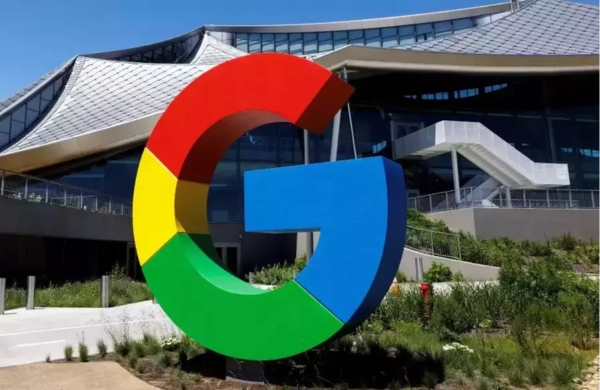
In today’s fast-paced world, we rely on technology and search engines to find answers to our questions instantly. Google has become synonymous with searching for information, to the point where the phrase “I’ll just Google it” has become a common part of our everyday language. However, the rapid advancement of artificial intelligence (AI) is reshaping how we interact with technology, and Google is at the forefront of this AI revolution.
In this article, we will delve into Google’s latest AI features and discuss the implications of integrating AI to the internet in real time.
The Rise of AI and Its Impact
AI has emerged as a transformative force, revolutionizing industries and daily life. Google recognizes the potential of AI as a collaborative tool and aims to leverage it to enhance user experiences. With generative AI experiences integrated into Google search, users can engage in more intuitive and natural conversations, resembling interactions with a knowledgeable friend who has access to the vast information on the internet.
Also Read: Google’s Palm 2: A Game-Changer in Large Language Models
Responsibly Advancing AI
Google understands the importance of responsible development and deployment of AI technologies. Despite the rapid progress in AI, Google has been cautious in releasing generative AI capabilities to the public. The company introduced its guiding principles in 2018 and has taken a slow and deliberate approach to ensure that AI is developed in a responsible and ethical manner.
Supercharging search with generative AI
Supercharging search with generative AI can have a significant impact on the search experience by enabling more accurate, relevant, and diverse search results.
Here are a few ways generative AI can enhance search:
-
Improved query understanding: Generative AI models can analyze search queries in more depth, taking into account the context, user intent, and possible variations. With the help of AI, search engines can furnish more explicit answers to complicated or unclear questions, thereby improving user experience.
-
Enhanced content summarization: Generative models can generate concise and accurate summaries of web pages, documents, or articles. These summaries can be used to provide users with a quick overview of the content, helping them decide whether it’s relevant to their search.
-
Richer multimedia search: Generative models can be trained to understand and generate various forms of media, such as images, videos, and audio. Search engines use AI capabilities such as facial and speech recognition to accurately detect any visual or auditory content that users may be searching for. This enhances the results of their searches.
-
Personalized search recommendations: By analyzing user behavior and preferences, generative AI can help create personalized search recommendations. These recommendations can be based on user search history, past interactions, and similar users’ preferences, leading to a more personalized and tailored search experience.
It’s important to note that while generative AI can enhance search, it also raises concerns related to the authenticity and the trustworthiness of the generated content. Balancing the benefits with responsible use and ethical considerations is crucial to ensure the reliability and integrity of search results.
Enhanced Features: Google Maps and Universal Translator
Among the exciting new features unveiled by Google are AI upgrades to Google Maps. Users can now access real-time weather and traffic conditions in a visually immersive 3D environment. Additionally, Google introduces a universal translator, allowing users to comprehend videos in languages they may not understand. These enhancements demonstrate the power of AI to enhance our everyday experiences and break down language barriers.
Watermarking and Safeguarding against Misinformation
As AI becomes more prevalent in content generation, concerns about distinguishing between reality and AI-generated information arises. Google acknowledges the need to combat the proliferation of misinformation and is implementing safeguards. Through watermarking and attached metadata, users will have better visibility into whether content is generated by AI or originates from verified sources. By informing the public, Google aims to maintain trust and transparency.
Bard and Google’s Responsibility
Bard, Google’s AI chat bot, provides insights into the integration of AI and potential antitrust concerns. While Bard is an experiment that will evolve over time, its responses showcase a balanced perspective, enabling users to draw their own conclusions. Google emphasizes the importance of empowering individuals to make informed decisions based on the information provided.
Also Read: ChatGPT: A New Way to Create Engaging Conversational AI Experiences
Looking Ahead: The Next AI Tools
With the continuous evolution of AI, Google anticipates the proliferation of generative AI across its products and services. Integrating conversational AI capabilities into various areas, such as translation and workspace, will enhance the utility of Google’s offerings. While it may not result in a specific verb like “Googling,” generative AI will undoubtedly play a crucial role in daily life, making tasks more efficient and aiding decision-making processes.
Balancing Innovation and Safeguards
The potential dangers associated with real-time AI access and beta testing are not lost on Google. As they gradually introduce generative AI capabilities, Google prioritizes safeguarding against the misuse of AI. Bard, for instance, is a standalone experiment and not yet integrated into search. By soliciting user feedback through waitlisted experiments, Google ensures responsible development, while actively involving the community in shaping the future of AI.
Conclusion
Google’s ongoing advancements in AI technologies mark a significant milestone in the integration of AI and the internet. While AI brings immense benefits and convenience, it also raises important considerations regarding privacy, misinformation, and responsible usage. By striking a balance between innovation and safeguards, Google aims to empower users while maintaining transparency. As we move forward into this AI-driven future, it is crucial to stay informed, engage responsibly, and embrace the evolving landscape of technology.

Leave a Reply